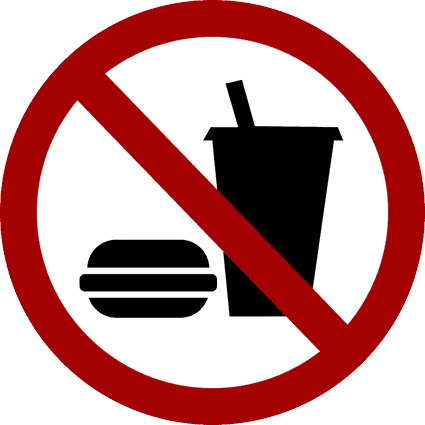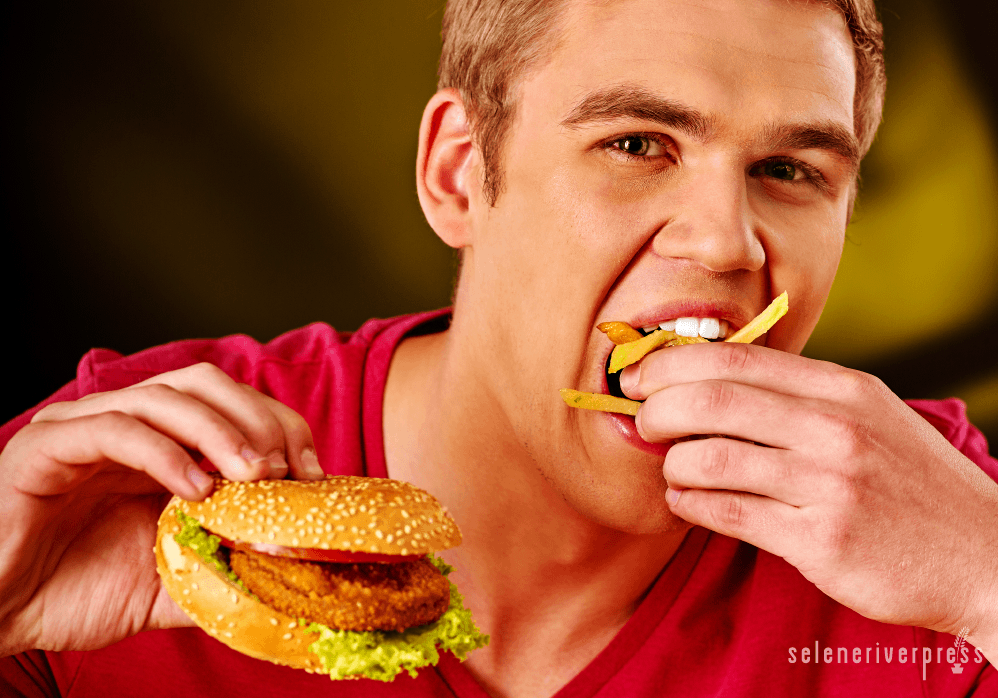When your kids are young, it’s easy to control the foods they eat. Sure, you can’t completely shelter them from less nutritious foods—they will be invited to birthday parties and the like. But, for the most part, you’re their food supplier. You’re in control.
This all changes once they become teenagers. They earn their own money, hang out with their friends on a Friday night, and explore the world around them. Whether it’s fast food or the candy aisle at the corner store, they’re faced with choices without your watchful eye monitoring their decisions. Often, the lesser choices can be quite appealing. Just ask the characters from the movie Over the Hedge.
Through their younger years, you can talk with your kids about why you don’t keep soda in the house. You can explain why you have apples rather than apple pies. You can talk about how they feel when they eat foods that don’t agree with them, and they’ll kinda-sorta understand. But as they get older, basic explanations won’t cut it anymore. Teenagers won’t believe you unless you can give them specifics that hit home in a more direct way.
We’ve been going through this with our oldest as of late. He earns his own money, so when he stops by the grocery store with his friends, he buys who knows what. We’ve come up with some tactics for helping him understand the effects of junk food on his entire being, and we hope these facts help guide his decisions as he navigates his choices out in the world.
Here’s how we’ve been talking with our teen about junk food:
We showed him “What Happens One Hour After Drinking a Can of Coke,” a revealing infographic from the Renegade Pharmacist. When your teenager is a thinker, like ours, chances are pretty good he or she will think about the consequences the next time they reach for a soda of any kind.
 We discuss better options when it comes to restaurant choices. When our son and his friends get together, they hit whatever restaurants are within walking distance of our neighborhood. Since a group of 15-year-olds aren’t likely to stop by a farm-to-table eatery (or have the funds for such a dining experience), we encourage our son to steer his buddies toward spots with real food options and choose water rather than a soda. After all, he can use the money he doesn’t spend on soda on more food—and our teenage boy is almost always hungry.
We discuss better options when it comes to restaurant choices. When our son and his friends get together, they hit whatever restaurants are within walking distance of our neighborhood. Since a group of 15-year-olds aren’t likely to stop by a farm-to-table eatery (or have the funds for such a dining experience), we encourage our son to steer his buddies toward spots with real food options and choose water rather than a soda. After all, he can use the money he doesn’t spend on soda on more food—and our teenage boy is almost always hungry.
We don’t turn it into a problem. When we discover an entire pocket of his backpack filled with empty candy wrappers, we try not to turn it into a problem. ’Cause, in case you hadn’t noticed, there isn’t anything teenagers want to do more than the opposite of what their parents want them to do. ’Tis the nature of the beast, yes?! Instead, we have him empty the pocket and ask about snacks we could make available that would satisfy whatever need the candy filled.
We expose him to various media sources he can relate to. Teenagers can understand documentaries like Super Size Me and infographics like the one I mentioned earlier. We know what types of media our son is drawn to, and you know what your teenagers like as well. Our son is a reader, so I gladly shared with him Stephanie Selene Anderson’s “Eat Crap and Die! A Test of Eating Skills for Ages 15–21.” She includes a fun quiz and offers up suggestions in a relatable manner. Be on the lookout for Anderson’s revised and illustrated booklet of that article—coming soon.
If you’re looking to improve your own understanding of what causes common teen ailments like acne, unwanted weight gain, and fatigue, the Practitioner’s Corner at SRP is a great tool. Whether you want entry level, intermediate, or advanced information, it’s all there. And it’s free.
Turns out, no matter what eating habits you advocate with your kids, it’s no guarantee they’ll stick with them—especially as their own buying power increases. They just might make choices that horrify you. But knowledge is power. If we lovingly expose our kids to information about the influence of nutrition on their daily lives, some little tidbit is sure to sink in and create a shift in the right direction.
How do you talk with your teenager about junk food?
Photo at top from iStock/targovcom



